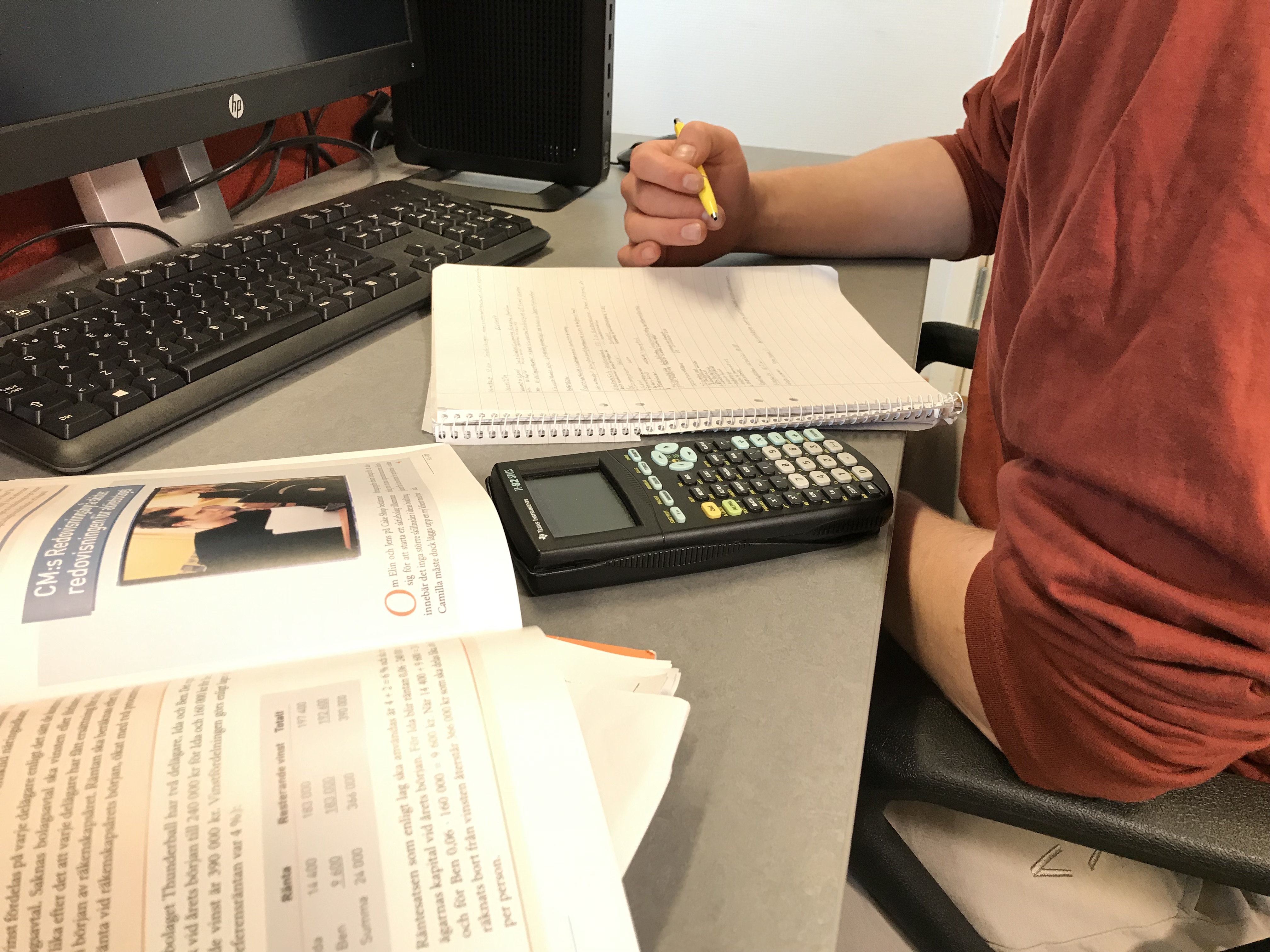Researcher spent two months in prison
Joel Berglund, PhD student in Education at the School of Education and Communication, Jönköping University, is conducting a unique study on how education works for prison inmates. He has spent 21 days in a medium security prison to observe teaching, and talk to both inmates and teachers. The aim is to understand how education is delivered in an environment characterized by strict rules and limited resources.

Stock image of a learning center in a correctional facility. The image was not taken at the same facility where the research was conducted. Photo: Swedish Prison and Probation Service.
In Sweden, some inmates can study at primary or secondary school levels, equivalent to adult education (Swedish “Komvux”). The education takes place at learning centres within the prisons through distance learning, where inmates study one subject at a time using computers without internet access. The teachers on site provide support, but the education is largely based on self-study. Priority for education placements is given based on age and previous educational background, with younger inmates without complete qualifications often receiving priority. Those who get the chance to study usually attend three half-days a week.
High demand
"Many in prison lack education or have incomplete qualifications. The demand for education is high, but the number of spots is limited. The needs will likely increase in the future, given societal developments and the growing prison population," says Joel Berglund.
Education in prisons also faces other challenges, including limited access to subject-specific teachers. Each learning centre has a few teachers in various subjects, but if an inmate needs help in a different subject, this is often done through phone contact with a teacher at another facility. Another challenge is the increasing number of inmates, which lengthens the queues for education placements.
Conducted interviews and observations
Occupational activities requirement in prisons
The occupational activities requirement means that prisoners are obligated to participate in structured activities during their time in prison. These activities may include rehabilitation programmes, studies, work, or other forms of occupation aimed at supporting their reintegration into society. Participation is important for promoting personal development and reducing the risk of reoffending.
The research was conducted through so-called ethnographic studies in a medium-sized security prison where Joel spent 21 days over two months. He conducted interviews and observations with both inmates and teachers to get a picture of how learning works in the locked environment.
- "If a researcher is to become an expert, it is important to have a physical knowledge of the environment," says Joel Berglund, emphasizing the importance of understanding the specific context to be able to create a more complete picture of the possibilities and limitations of education behind the walls.
In the future, he plans to interview teachers at more prisons and eventually deliver a research and development (R&D) report to the Prison and Probation Service.
Collaboration with the Prison and Probation Service
Entering the prison and conducting the studies required close collaboration with the Swedish Prison and Probation Service. A collaboration that has worked well, although the process meant he had to navigate many rules and restrictions.
"It has worked well to collaborate with the Swedish Prison and Probation Service, you can understand that certain things take time as these are sensitive environments. It’s a rigorous process," explains Joel Berglund.
The study is part of Joel Berglund’s upcoming doctoral thesis in education with a focus on adult learning. He has a background as a subject teacher in history and Swedish as a second language. He has also worked as a substitute teacher at a prison.
Ethnographic study
An ethnographic study is a research method within the social sciences that focuses on understanding people's behaviours, cultures, and experiences through observation and participation in their daily lives. This method often involves the researcher being present for an extended period to gather data through interviews and observations. The goal is to gain a deep insight into the lives and social contexts of the group being studied.
Contact
- Doctoral Student in Education
- School of Education and Communication
- joel.berglund@ju.se

